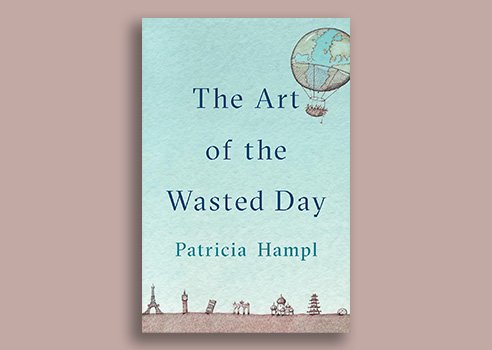Reading time: Less than 2 minutes
I like to share interesting pieces of figurative language I encounter in my reading. I write today about a series of metaphors from American writer Patricia Hampl….
The book was lying on my bedside table, and my husband happened to glance at it. “What a great title!” he said. The book was Patricia Hampl’s The Art of the Wasted Day, which had been a gift to me from a friend.
I suspect my friend thought I worked too much, and she assumed the book would offer a compelling counterweight to my natural tendencies. It didn’t accomplish that end, though, because the book wasn’t really a reflection on the value of idleness. Instead, it was a poetic interpretation on the art of being.
Hampl’s poetic imagery is truly acute. Here are my favourite examples from this exceptionally well-written book:
- Out of the deep folds of childhood, the beech nut tree wagged its scissored leaves above me, and faded away again.
- His [Michel de Montaigne’s] formality is part of his age, a world that accepted the primacy of the complex clause, the sprung coil of thought to releasing itself in a long periodic sentence. The page is an open prairie he rides across (he claimed to like riding even more than writing).
- The armor covering my unease is always a book tucked in my purse, as if I packed a pearl-handled pistol.
- The lawn, vast and severely manicured, suggested a daft Alice in Wonderland set design by Disney.
- I heard of elephantine topiaries crouched on the lawn, green bulbous potentates in possession of the expense.
- The room was spacious, but like all music studios it felt cramped, two baby grands bulging their big hips at each other, a white bust of Chopin on one, a bloodless Schubert on the other.
- When the rain hits the black asphalt of the street, I told her one day, it looks just like ballerinas on point.
- Henry James, crown prince of nineteenth-century describers, flaneur of the sentence, lounge lizard of the paragraph, takes his own sweet time to unfurl an observation, smoking the cheroot of this thought in the contemplative after-dinner puffery of a man who knows how to draw out the pleasure of his rare tobacco.
- But then there may be no more solitary location in American than a New York subway—take a look at the faces of those commuters, their heads bent do their own books like monks at their breviaries, little glowing screens casting an other-worldly aura onto their intent faces.
- The sky, which had been pastel, looked suddenly bruised and angry.
- Boats, tethered to the creaking wooden slips, rubbed against their bumpers, sighing and groaning like well-fed beasts.
An earlier version of this post first appeared on my blog on June 6/19.


